Below is a directory of Documentary, Visual Methods and Social Justice members. For research and other inquiries, please view our Contact page.
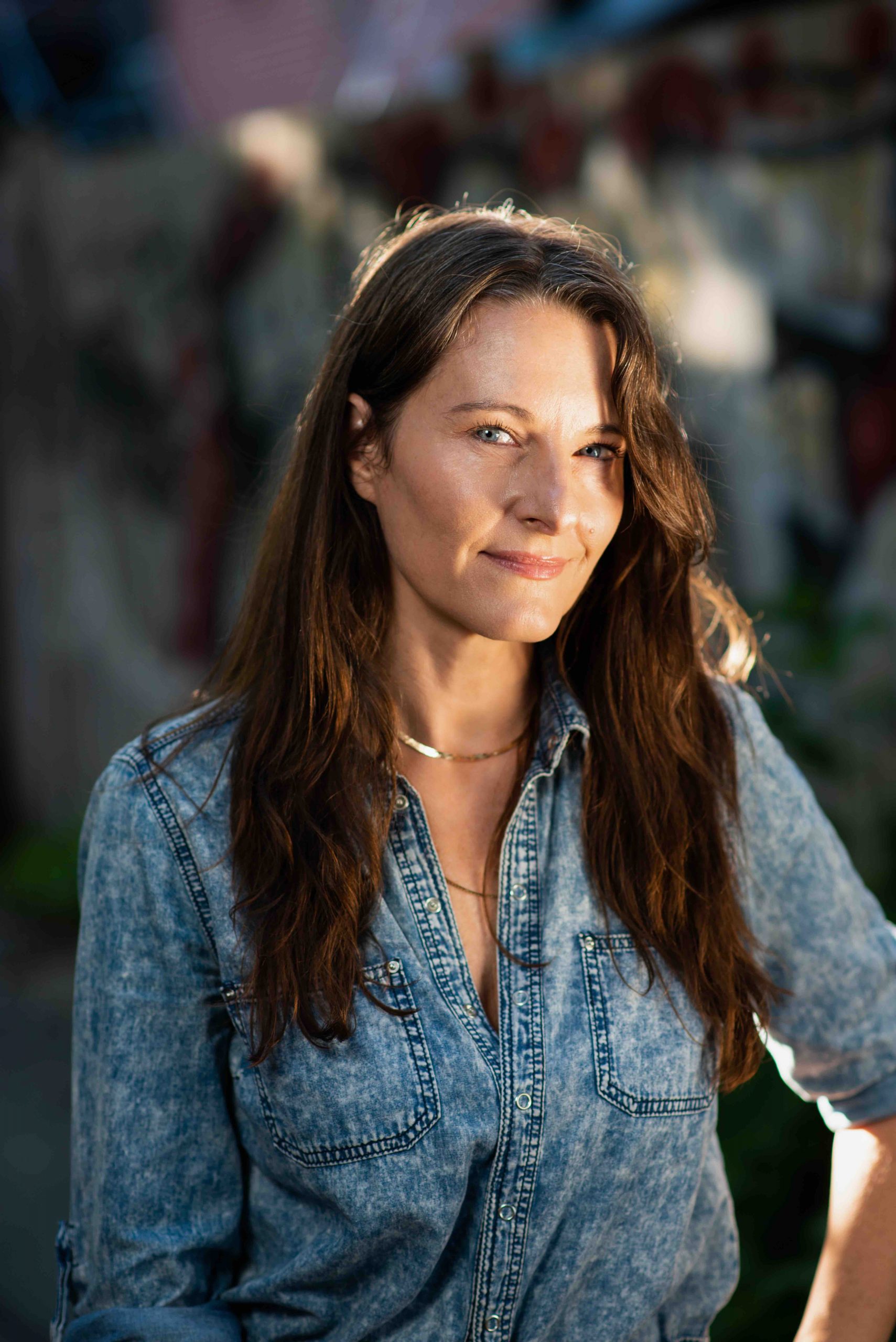
Shannon Walsh (she/her)
Cluster Lead, Associate Professor
Theatre & Film (Film Production) @Shannondwalsh
Shannon Walsh is writer and director.She has made 5 award-winning feature documentaries: The Gig is Up (2021), Illusions of Control (2019), Jeppe on a Friday (2013), À st-henri, le 26 août (2011), and H2Oil (2009). Her films have been theatrically released in the US, Canada, England and South Africa, and broadcast on Al-Jazeera, CBC, SABC, Discovery channel, Netflix and others. Her work has screened in festivals globally such as Hot Docs, IDFA, CPH:DOX, Visions du Réel, La Rochelle, Full Frame, Beijing and others. As a theorist, she has published in a range of research areas, largely focused visual methods and activist research. Recent co-edited books include, In My Life: Stories of South African AIDS activists 2002-2022, and The Ties that Bind: Race and the Politics of Friendship in South Africa. She is a 2020 Guggenheim Fellow. She is currently touring with The Gig is Up (2021), and in production on the hybrid doc Adrianne & the Castle.
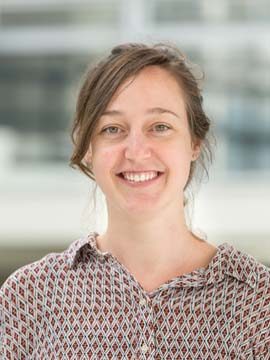
Anna Casas Aguilar (she/her)
Assistant Professor
French, Hispanic and Italian Studies
Anna Casas Aguilar’s research and teaching focus on gender and cultural studies in contemporary Spain, with a particular interest in literature, cinema and photography. She has published on material culture, objects and the body in the Spanish-speaking world. Anna’s book Bilingual Legacies: Father Figures in Self-Writing from Barcelona (University of Toronto Press, 2022) examines how authors who grew up during Francisco Franco’s dictatorship confronted and reconstituted the regime’s model of fatherhood and masculinity. Drawing on psychoanalysis as well as feminist, gender and autobiographical theory, the project contributes to current debates about gender identity and masculine subjectivity in the Spanish-speaking world.
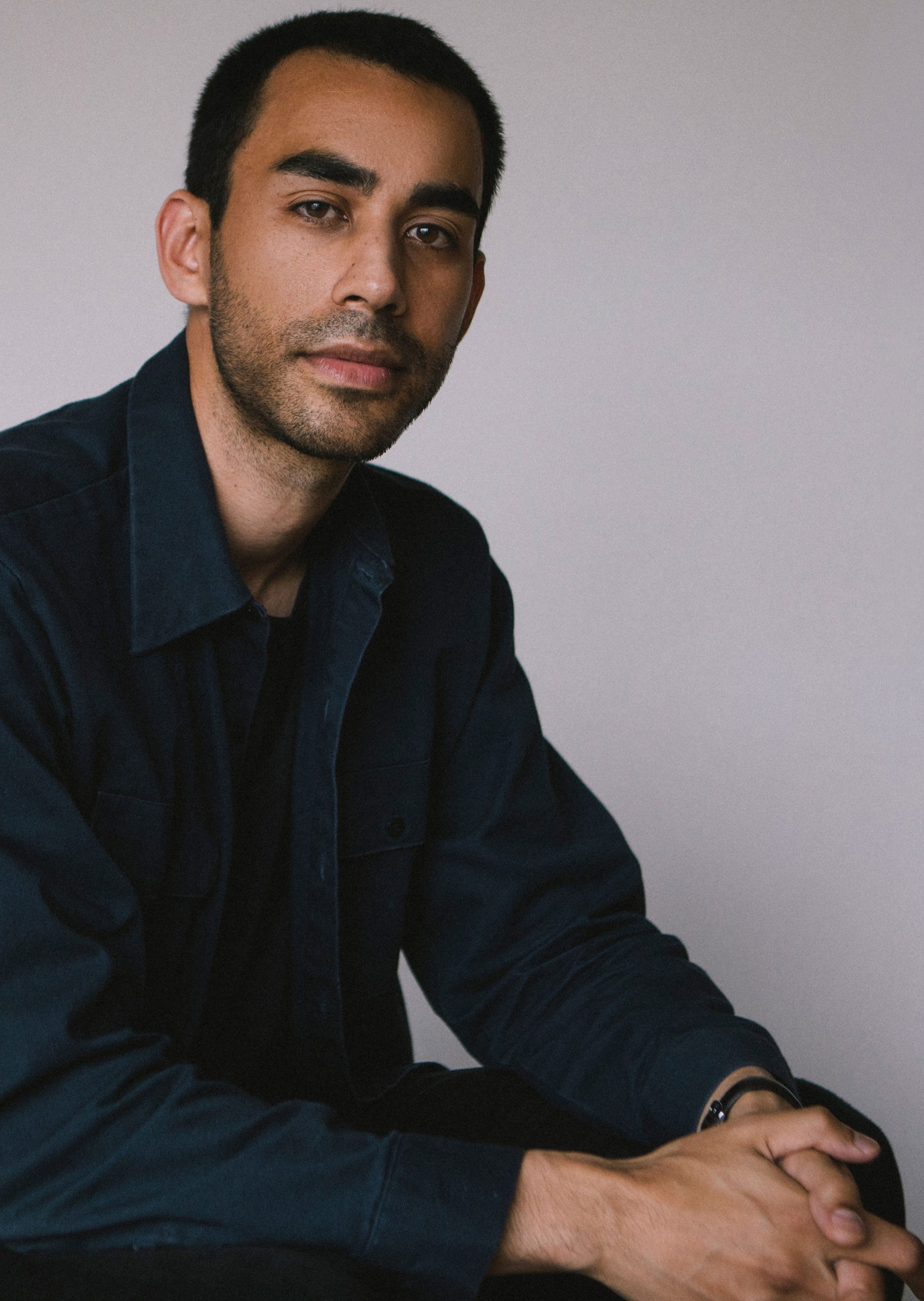
Antoine Bourges (he/him)
Assistant Professor
Theatre & Film (Film Production)
Antoine Bourges is a filmmaker and Assistant Professor in the Department of Theatre and Film at UBC. Bourges’ work blurs the lines between fiction and documentary, often exploring the impact of systems and institutions on human relationships. His films have been presented in numerous festivals and film spaces such as Berlinale, TIFF, Viennale, Centre Pompidou’s Cinéma du Réel, Art of the Real, and the Anthology Film Archives.
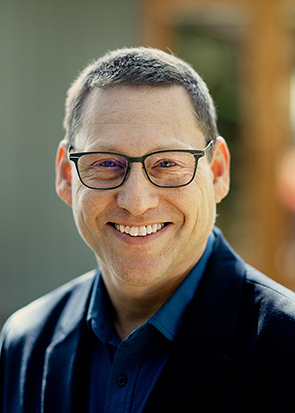
Avi Lewis (he/him)
Associate Professor
Geography
Avi Lewis is an Associate Professor in the Geography department at the University of British Columbia. Avi is also a documentary filmmaker and educator, with more than 30 years of experience in journalism and storytelling from the front lines of social movements. In 2015, he was a co-author of The Leap Manifesto; fifteen political demands to get Canada off fossil fuels in a way that simultaneously confronts racial and gender discrimination and economic inequality. He has also been deeply involved in the emergent frame of the Green New Deal – working with The Sunrise Movement in the US, and producing the animated short films Message from the Future with Alexandria Ocasio-Cortez and Message from the Future II: The Years of Repair, written with Black Lives Matter co-founder Opal Tometi.
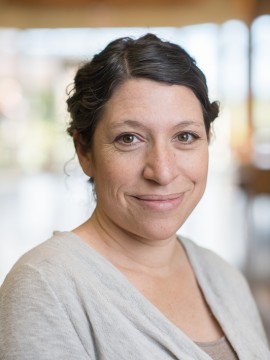
Daisy Rosenblum (she/her)
Assistant Professor
Institute for Critical Indigenous Studies and Anthropology & co-Director, Community Engaged Documentary and Research Space (CEDaR)
Daisy Rosenblum (PhD University of California, Santa Barbara) focuses on the multi-modal documentation and description of indigenous languages of North America, with an emphasis on methods, partnerships, and products that contribute to community-based language revitalization. She currently works with speakers of Kʷak̓ʷala, a Wakashan language of British Columbia, to record narrative, conversation, and other types of spontaneous speech for today’s and tomorrow’s learners and teachers of the language. Before becoming a linguist, Daisy taught art and designed curriculum in public elementary schools, museums and libraries in Brooklyn and Queens, was coordinator of Immigrant Artist Services at New York Foundation for the Arts, and worked as a shadow puppeteer.
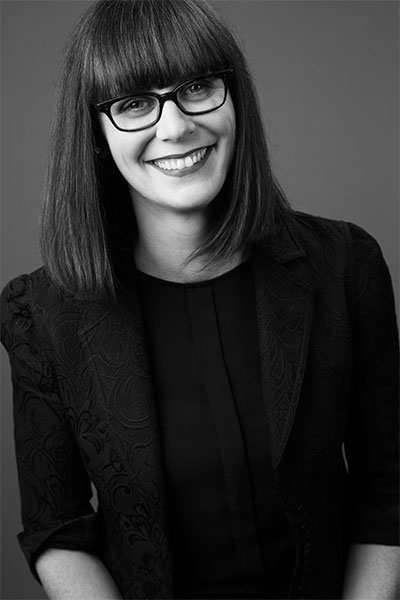
Fiona P. McDonald (she/her)
Assistant Professor
Anthropology
Fiona P. McDonald is the co-creator the Collaborative and Experimental Ethnography Lab (CE2 Lab) at UBCO with Professor Sue Frohlick. The lab is home to two integrated research programs that focus upon Climate Justice + Social Change and Mobility + Social Change. Through the lab, Fiona leads two projects that address Climate Justice + Social Change: (1) Resilient Indigenous Housing; and (2) Sensory Storytelling. Fiona is also the co-founder of Ethnographic Terminalia Collective (ETC) (est.2009), an international curatorial collective that curates’ exhibitions at the intersections of arts and anthropology. ETC have curated and organized exhibitions and workshops across North America where they aim to move academic research beyond the academy through public engagement. Fiona completed her PhD (2014) in the Department of Anthropology at University College London (UCL) in visual anthropology & material culture.

George Belliveau (he/him)
Professor
Language & Literacy Education
Professor Belliveau specializes in Theatre Education where he integrates theatre as a form of research and artistic expression across multiple disciplines. He is an international leader in research-based theatre, and has shared his performative approach to research in numerous countries around the world. His co-edited book Research-based as Methodology(Intellect, 2016) establishes the complexity and richness of this emerging field of artistic research. His most recent project Contact! Unload, a research-based play about the stress injuries that soldiers suffer post-deployment, has been shared nationally and internationally, including a private showing for Prince Harry, a soldier himself and advocate for men’s mental health. His arts-based approach to research has been successfully funded by CIHR, SSHRC, Movember, among other sources.
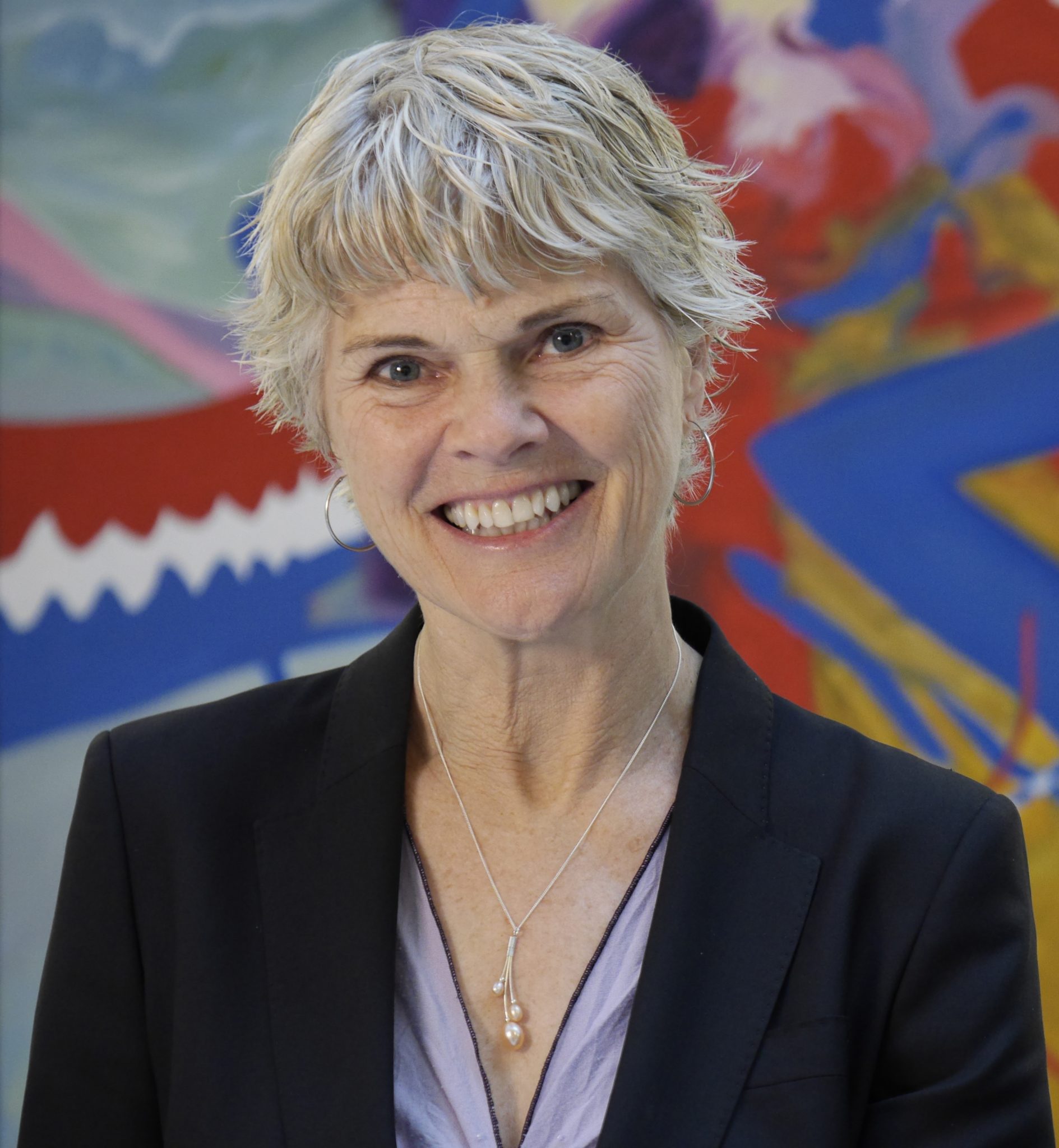
Heather McKay (she/her)
Professor
Medicine, Family Practice & Department of Orthopaedics, Principal Scientist, Active Aging Research Team, Centre for Hip Health & Mobility
Professor Heather McKay is passionate about community-based health research, working with community partners to find ways to scale-up effective health interventions to positively effect health at a population level. Her program of research encompasses: effective interventions and myriad factors that influence the health of children, and the physical (mobility), social (connectedness) and mental (loneliness) well-being of older adults; the design, implementation and evaluation at scale of effective community-based health promoting interventions (implementation science); and knowledge mobilization. Professor McKay has published over 250 peer-reviewed papers and accrued more than $50 million in competitive grant funding. At the University of British Columbia, she is the Active Aging Research Team lead scientist. She has been in collaboration with the B.C. Ministry of Health for more than 15 years and currently leads a multi-level partnership with researchers, government, health authorities and NGOs to enact Active Aging BC (ABC). Professor McKay convenes highly effective, interdisciplinary research teams. She connects scholars with an array of cross-sectoral community and government stakeholders to “move research into action” to positively impact the health of children and older adults.
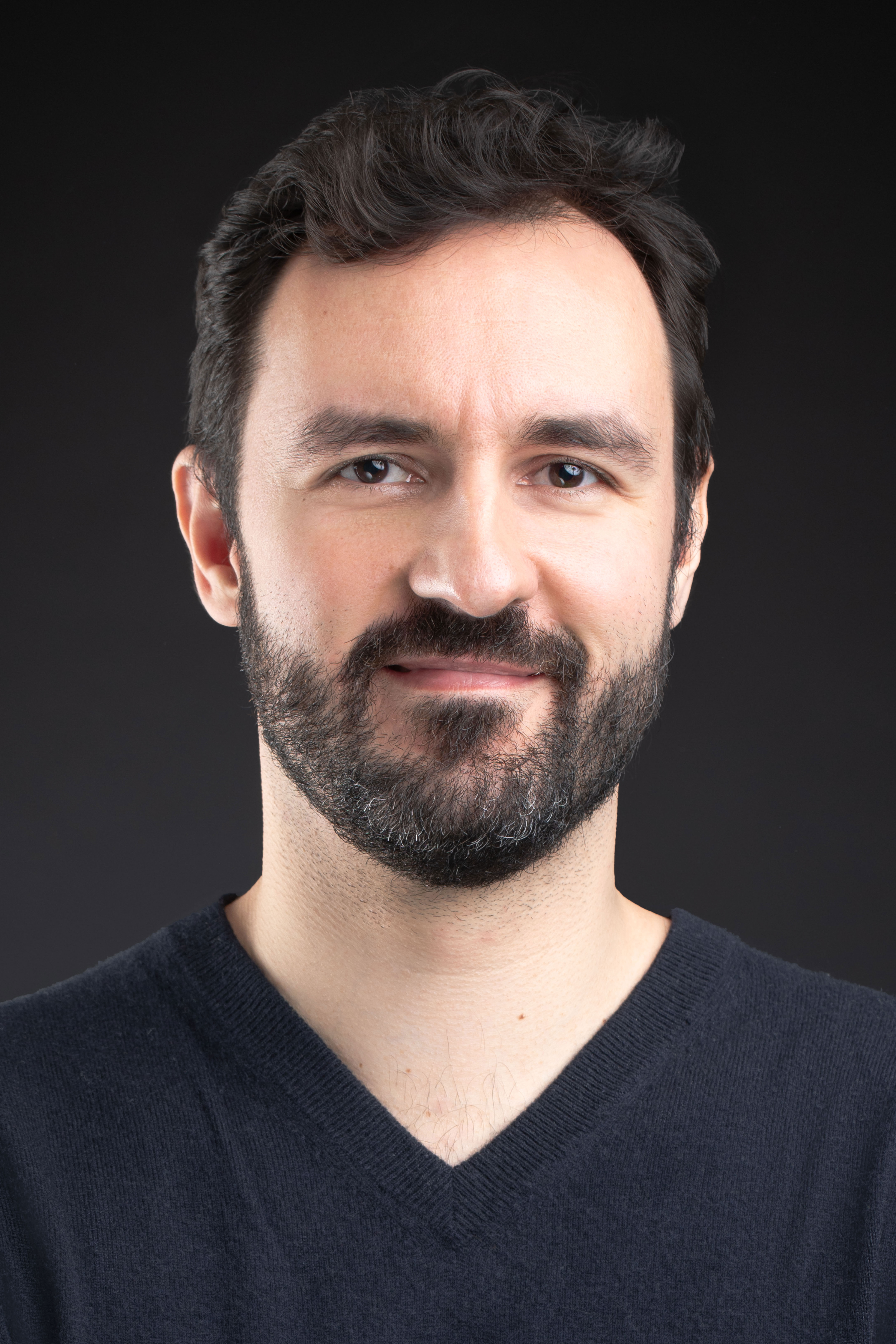
Igor Drljaca (he/him)
Assistant Professor
Theatre & Film (Film Production)
Igor Drljaca critically acclaimed debut feature Krivina (2012) premiered at the Toronto International Film Festival, and had its international premiere at Rotterdam. He co-produced Albert Shin’s In Her Place (2014), which received 7 Canadian Screen Award nominations, including best picture. His sophomore feature The Waiting Room (2015) premiered at Locarno International Film Festival, and had its North American premiere at TIFF. It was nominated for 2 CSA’s. His first feature documentary, The Stone Speakers (2018) had its world premiere at TIFF and international premiere at Berlinale 2019 in the Forum section. The Archivists (2020) is his latest short film, a dystopian musical that premiered at TIFF in 2020 and was also included in TIFF’s annual Canada’s Top 10 list. The White Fortress (Tabija, 2021), his third narrative feature, is a co-production between Canada and Bosnia-Herzegovina. It had its world premiere at the 71st Berlinale as part of the Generation 14Plus competition. It was also selected to represent Bosnia-Herzegovina in International Feature category at the 94th Academy Awards. The film was also included on TIFF’s Canada’s Top 10 list for 2021, and nominated for two Canadian Screen Awards: best original screenplay (Igor Drljaca) and best lead actor (Pavle Cemerikic).
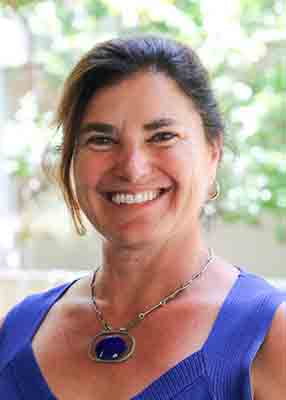
Leila M. Harris (she/her)
Professor
Institute for Resources Environment and Sustainability (IRES) & the Institute for Gender, Race, Sexuality and Social Justice (GRSJ) (Film Production)
Leila M. Harris is a professor at IRES Institute on Resources Environment and Sustainability and with the Institute for Gender, Race, Sexuality and Social Justice at the University of British Columbia. Dr. Harris’s work examines social, cultural, political-economic, institutional and equity dimensions of environmental and resource issues, particularly issues related to water politics, infrastructures, and governance. She has worked in diverse contexts such as Turkey, South Africa, and Ghana and on important issues such as First Nations water security and inequities in Canadian water governance.
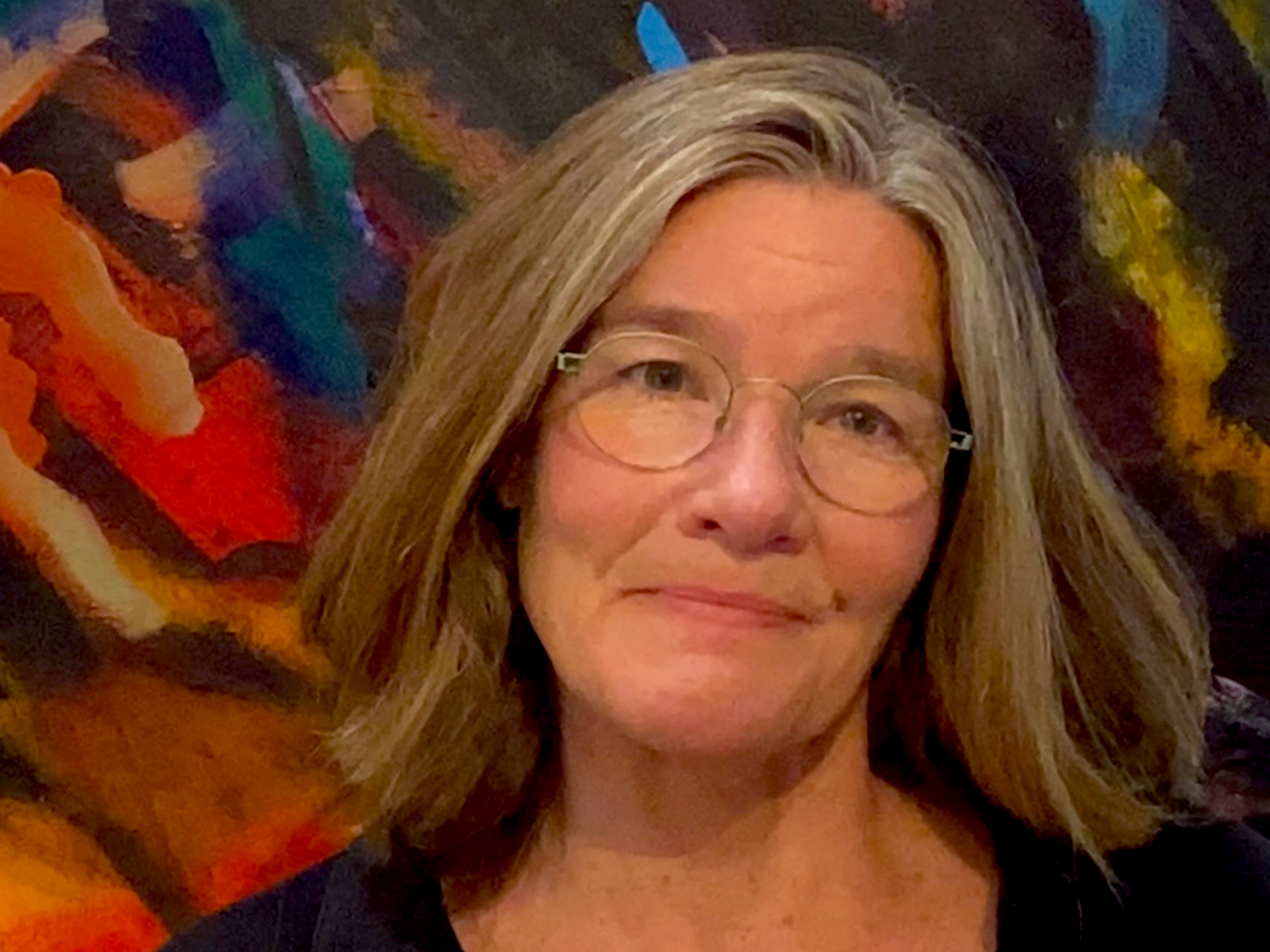
Leslie Robertson (she/her)
Associate Professor
Anthropology
I have conducted a variety of academic and applied, ethnographic projects with First Nations and settler communities in Western Canada. I’m interested in methodological approaches to difficult knowledge production (silenced pasts, colonial impasses, contested representations). Research and community collaborations include work on intergenerational histories; Indigenous activism; historical and contemporary colonial processes; street drug use, violence and homelessness; place-making and memory; difference; stigmatization and health. Work with personal narratives includes life stories, dream narratives, ethnographic witnessing, archival and oral histories. My recent research focuses on the existential afterlife of historical colonialism, how people from diverse cultural and social locations inhabit their histories, the imaginative resources they draw upon to speak about them, and the role of anthropology in translating and interpreting them. This includes attention to social projects linked to histories and territories and realized through community-generated and collaborative methodologies.
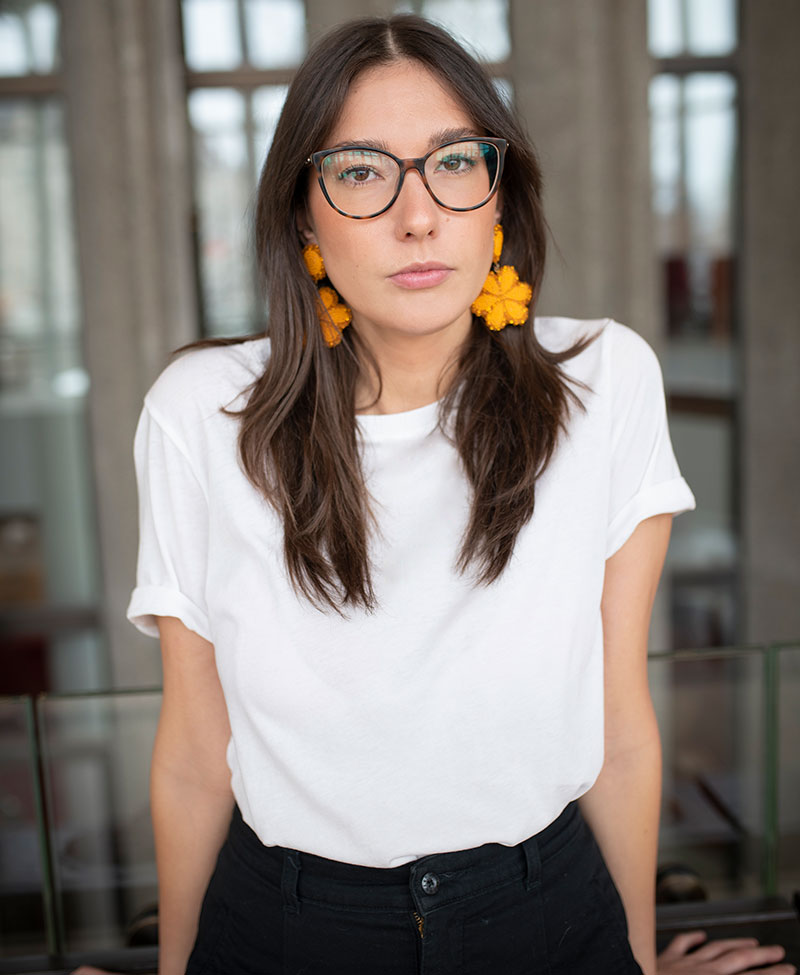
Lindsay Lachance (she/her)
Assistant Professor
Theatre & Film (Theatre Studies)
Dr. Lindsay Lachance is from an Algonquin Anishinaabe family and is an Assistant Professor in the Department of Theatre and Film at UBC. Lindsay has played a leading role in the creating and direction of the Indigenous Theatre department at the National Arts Centre as the first Artistic Associate. She earned a PhD in Theatre from the University of British Columbia and, in January 2018, successfully defended her dissertation titled “The Embodied Politics of Relational Indigenous Dramaturgies.” Lindsay’s academic work exists at the intersections of Indigenous Theatre and Critical Indigenous Studies, where she celebrates and supports Indigenous theatre theory and dramaturgical structures. Her academic work explores Indigenous approaches to developing Indigenous theatre, as practiced by her in her dramaturgical processes with Indigenous and non-Indigenous theatre artists and students.

Mark Turin (he/him)
Associate Professor
Institute for Critical Indigenous Studies & the Department of Anthropology
Mark Turin is a socio-cultural anthropologist and an Associate Professor at the University of British Columbia. He is cross-appointed between the Institute for Critical Indigenous Studies and the Department of Anthropology. From 2014-2018, Dr. Turin served as Chair of the First Nations and Endangered Languages Program and from 2016-2018, as Acting Co-Director of the University’s new Institute for Critical Indigenous Studies. For academic year 2019-2010, he held a Killam Faculty Research Fellowship and served as a Wall Scholar at the Peter Wall Institute for Advanced Studies at UBC.

Maureen Kendrick (she/her)
Professor
Language & Literacy Education
I am a Professor in the Department of Language and Literacy Education at the University of British Columbia. My research examines literacy and multimodality as integrated communicative practices, and addresses a range of social and cultural issues in diverse contexts. I have a particular interest in visual communication.
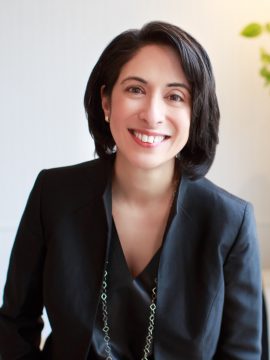
Minelle Mahtani (she/her)
Associate Professor
Institute for Social Justice
Brenda and David McLean Chair in Canadian Studies
Minelle Mahtani is Associate Professor at the Institute for Social Justice at UBC. She held the role of the Senior Advisor to the Provost on Racialized Faculty where she supported the recruitment and retention of racialized faculty. She is also a former national television news journalist at the CBC and was previously a journalism and geography professor at University of Toronto. She has been hosting a radio show at Roundhouse Radio, 98.3 Vancouver for the last three years. Her show was unapologetically anti-racist and feminist in its approach, focusing on the stories of systemically disadvantaged communities. The show won four awards, including a Canadian Ethnic Media Association award for building relationships between ethnic communities and Indigenous communities, and a British Columbia Association of Broadcasters award for best community service reporting. She is the author of “Mixed Race Amnesia: Resisting the Romanticization of Multiraciality” with UBC Press.
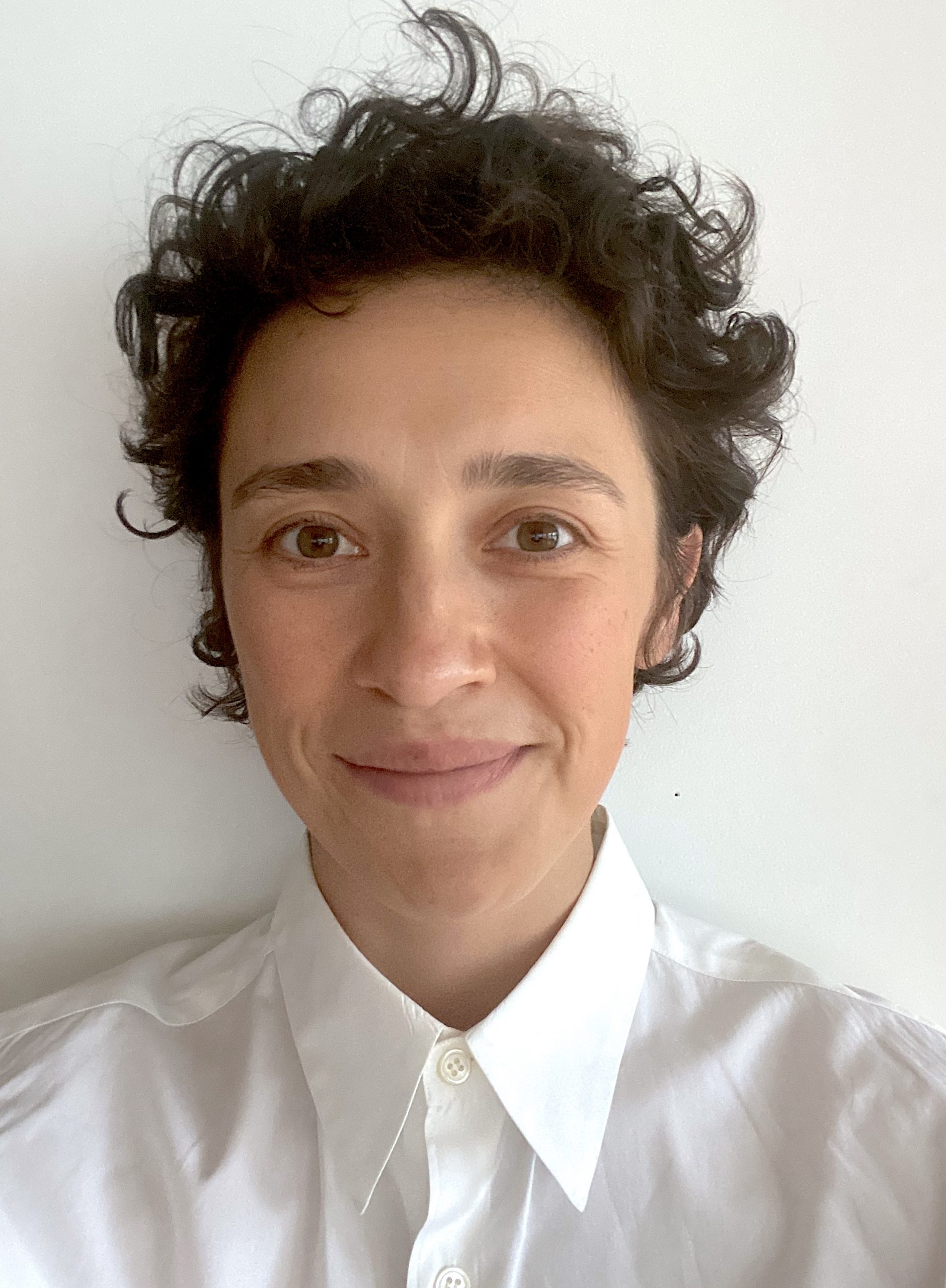
Olivia Michiko Gagnon (she/her)
Assistant Professor
Theatre & Film (Theatre Studies)
Olivia Michiko Gagnon, BA Hons (U. Toronto), MA (NYU), PhD (NYU), specializes in performance studies, with research and teaching interests in minoritarian performance, cultural production, and multimedia aesthetic practice; critical race and ethnic studies; feminist and queer theory; critical Indigenous studies; archival theory; and performative writing. She is currently working on her first monograph which theorizes closeness as a minoritarian method of doing history through art & performance and beyond archival stricture. Her writing has appeared in ASAP/Journal, Canadian Theatre Review, emisférica, Syndicate, and Women & Performance: a journal of feminist theory, where she was Managing Editor from 2017 – 2019 and is co-editor (with James McMaster) of a special issue titled The Between: Couple Forms, Performing Together. She has also written for the Vancouver Art Gallery (with Monika Kin Gagnon) and the New Museum, and was formerly Managing Editor of HemiPress at the Hemispheric Institute of Performance and Politics in New York City. She received her PhD and MA from the Department of Performance Studies at New York University, was formerly a postdoctoral fellow at the Center for the Humanities at Tufts University, and has taught at NYU, Tufts, and Harvard University.

Peter Klein (he/him)
Professor
School of Journalism, Writing & Media & Executive Director of Global Reporting Centre
Peter W. Klein is an Emmy Award-winning journalist and full professor at the School of Journalism, Writing, and Media. He is executive director of the UBC Global Reporting Centre, and was director of the school from 2011 to 2015. He is also a faculty associate at the UBC School of Public Policy and Global Affairs. Klein runs the Global Reporting Program, a year-long course in which he works with master’s journalism students from UBC and other universities worldwide to study and practice global reporting. This course grew out of the decade-long International Reporting Program, in which School of Journalism students traveled around the world to work with news organizations including The New York Times, Toronto Star, The Guardian, PBS Frontline, Vice News and Al Jazeera, producing documentary projects that have won awards from most of the major news organizations including the National Academy of Television Arts & Sciences (Emmy for Best Investigation), Society of Professional Journalists (Sigma Delta Chi), Radio Television Digital News Association (Edward R. Murrow), International Academy of Digital Arts and Sciences (Webby Honour), the Online News Association (OJA), Editor & Publisher (EPPY), Canadian Association of Journalists (CAJ), Digital Publishing Award, and Canadian Online Publishing Award.
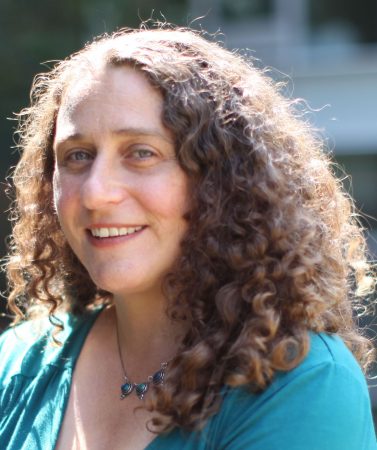
Sara Shneiderman (she/her)
Associate Professor
Anthropology & School of Public Policy and Global Affairs/Institute of Asian Research
I am a socio-cultural anthropologist with long-term ethnographic commitments in the Himalayas and South Asia (Nepal, India, and Tibetan areas of China), and emerging research engagements in British Columbia, Canada. I serve as Associate Professor in the Department of Anthropology as well as in UBC’s School of Public Policy and Global Affairs/Institute of Asian Research. Broadly speaking, my research explores how social transformation is shaped by dynamics of citizenship and belonging (in relation to Indigenous, ethnic, religious and gender identities); cross-border mobility; conflict and political mobilization; territory and land use; development discourses and practices; and disaster aftermath and preparedness. Current research projects include a transdisciplinary SSHRC Partnership Development Grant focused on Nepal’s post-earthquake reconstruction; an ethnography of “post-conflict” state restructuring in Nepal; an exploration of trans-Himalayan citizenship across the historical and contemporary borders of India, China, and Nepal; participation in a University of Toronto-based project on infrastructure and development in Nepal’s agrarian districts; and collaboration in a Yale University-based project on urbanization and land use change in the Himalayas. I am in the early stages of two new research projects in British Columbia: one focused on the sociopolitical dimensions of disaster preparedness and governance; and the other about Nepali-Canadian experiences, in collaboration with the Nepal Cultural Society of BC.
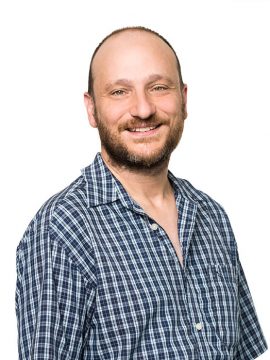
Tom Scholte (he/him)
Professor
Theatre & Film (Acting/Directing)
Tom Scholte is a nationally recognized actor, director, writer and producer in the realms of theatre, film, and television. Among his numerous screen credits are a Genie nominated and Leo winning performance in the feature film, Last Wedding; a Gemini winning performance on the TV drama, Da Vinci’s Inquest; and a Leo winning performance in the short film Exposures. Tom has been trained in the techniques of Theatre of the Oppressed and Theatre for Living by David Diamond under whose direction he was an actor and co-creator in Theatre for Living’s ‘šxʷʔam̓ət (home). Since 2017, he has been the Faculty Lead and Artistic Director of Conflict Theatre@UBC, a partnership between UBC’s Departments of Human Resources, Theatre and Film, and Office of Equity and Inclusion, using Forum Theatre to explore blockages to productive and authentic communication in situations of workplace conflict.
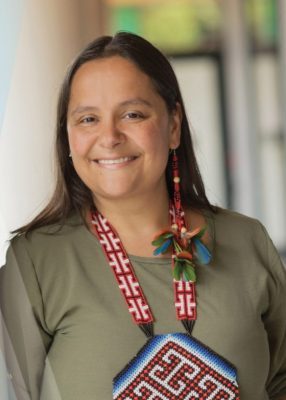
Vanessa de Oliveira Andreotti (she/her)
Professor
Canada Research Chair in Race, Inequalities and Global Change, Educational Studies
My research examines historical and systemic patterns of reproduction of inequalities and how these limit or enable possibilities for collective existence and global change. My publications in this field include analyses of political economies of knowledge production, discussions of the ethics of international development, and critical comparisons of ideals of globalism and internationalization in education and in global activism, with an emphasis on representations of and relationships with marginalized communities. My work in teacher education conceptualizes education as an expansion of frames of reference and of fields of signification with a view to expanding possibilities for ethical solidarities. My academic work is committed to protecting the public role of the university as critic and conscience of society and as a space of independent, multi-voiced, critically informed and socially accountable debates about alternative futures.
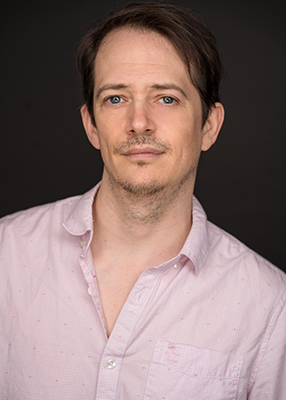
William Brown (he/him)
Assistant Professor
Theatre & Film (Film Studies & Film Production)
William Brown (Assistant Professor of Film, D.Phil. University of Oxford). William joined UBC from the University of Roehampton, London, in January 2022, having previously taught at the University of St Andrews, the University of Oxford and New York University Abu Dhabi. He is both a scholar and a maker of films, with work spanning fiction, documentary, the video-essay and hybrids of all three. His current research focuses primarily on film-philosophy, digital media, posthumanism and critical race theory.
Graduate Students
| Name | University/Institution | Bio | |
|---|---|---|---|
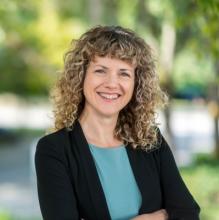 | Callista Ottoni, PhD candidate | Public Scholars Initiative, Interdisciplinary Studies & Director of Video Production and Strategy for the CFI funded Knowledge Mobilization Studio | Working with seniors in West End, Callista aims to reflect their voices and their experiences of loneliness and connectedness through audio-visual products that will be shared with the community and government representatives. Callista hopes that the ensuing dialogue will result in better and more effective strategies to support older adults at risk of social isolation. Leader in knowledge translation & mobilization, and community engaged qualitative health research, PhD Candidate UBC. |
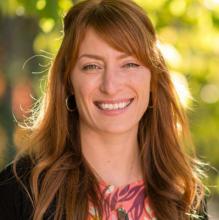 | Dacotah-Victoria Splichalova, PhD candidate | Institute for Resources Environment and Sustainability | PSI Scholar and doctoral student Dacotah-Victoria’s research considers humans’ relations and connections – to water and lived-experiences of water (in)security. Engaging in knowledge co-creation and creative arts-based approaches of storytelling, theatre and film, this partner-led research in Canada and New Zealand explores the social dimensions of water beyond measurements of quality and quantity – culture, values, identity… and their inclusion to mobilize and encourage varied conversations and responses to water (in)security. |
 | Saori Ogura, PhD candidate | Occupational Science and Occupational Therapy at the Faculty of Medicine, and a UBC Public Scholar | 2017-18 PSI Scholar and 3MT semi-finalist Saori Ogura was the recipient of the 2017 Nikon Salon Photography Award and the Nikon Miki Jun Inspiration Award for her photojournalism project documenting her time living in Sikkim and Darjeeling in India’s eastern Himalayas. Her exhibit, titled “Learning from Rong,” was named after the Indigenous Lepcha people, known also as Rongkup, who live in this region. |
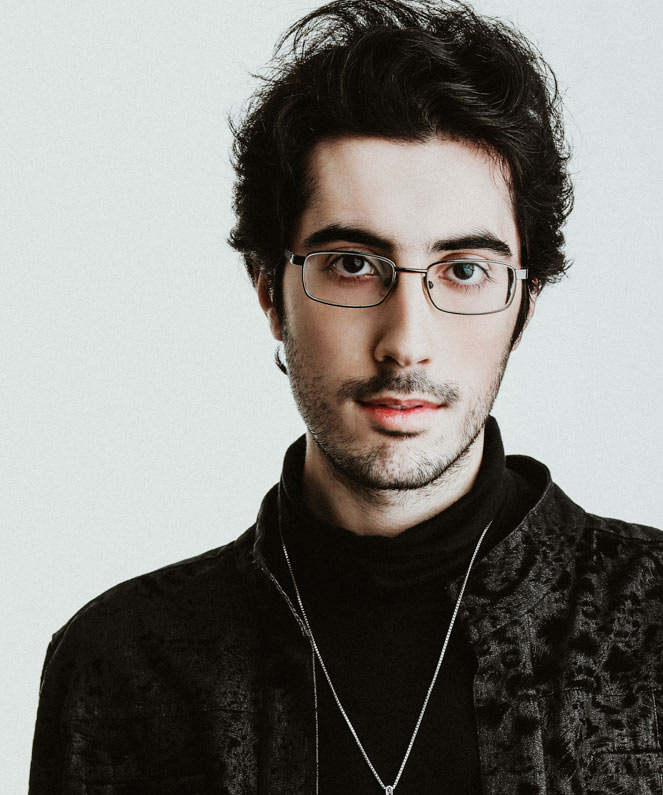 | Sam Mohseni, MFA | Theatre & Film (Film Production) | Sam Mohseni is an emerging writer-director based in Vancouver, BC. Born and raised in Iran and coming from a musical background, Sam pursued filmmaking after emigrating to Canada. During his undergraduate studies in the Film Production program at UBC Theatre and Film, Sam made two short narratives, “Saida” and “Poplife”, both of which dealt with issues of immigration and identity in North America. “Saida” was an award nominee for Best National Film at the University of Winnipeg Film Festival 2018 (UWpg), and “Poplife”, a music-driven drama, was an official selection at Vancouver Short Film Festival 2020. “Maple at Night” is a short cultural documentary Sam made in China in two weeks as part of Looking China Filmmaking Project which turned out to be a Golden Lens Award winner for Best Film in 2018, the year he was also the recipient of North Shore Studios Scholarship in Film Production. |
 | Jimmy Lo, MFA | Theatre & Film (Film Production) | Jimmy Lo is a documentary filmmaker and an aspiring film educator from Hong Kong. In 2020, he completed his first feature documentary “Stories of Pang Jai”, which was executively produced by Oscar-winning documentarian Ruby Yang and funded by HKADC and Hong Kong Documentary Initiative. The film got nominated for the Human Rights Award at the South Taiwan Film Festival 2020. His other short documentaries include Yung Yung (2016) and In(ex)ception (2018), which were screened and exhibited at the Hong Kong Chinese Documentary Festival and 1a space respectively. Prior to studying at UBC, Jimmy had been teaching as a TA in the tutorials and documentary workshops for an undergraduate filmmaking course and a master's degree documentary course respectively at The University of Hong Kong from 2018 to 2022. Currently, Jimmy is pursuing his MFA in Film Production at UBC and working on his thesis film on the multigenerational, transnational migration of the Hong Kong immigrants in Canada. |